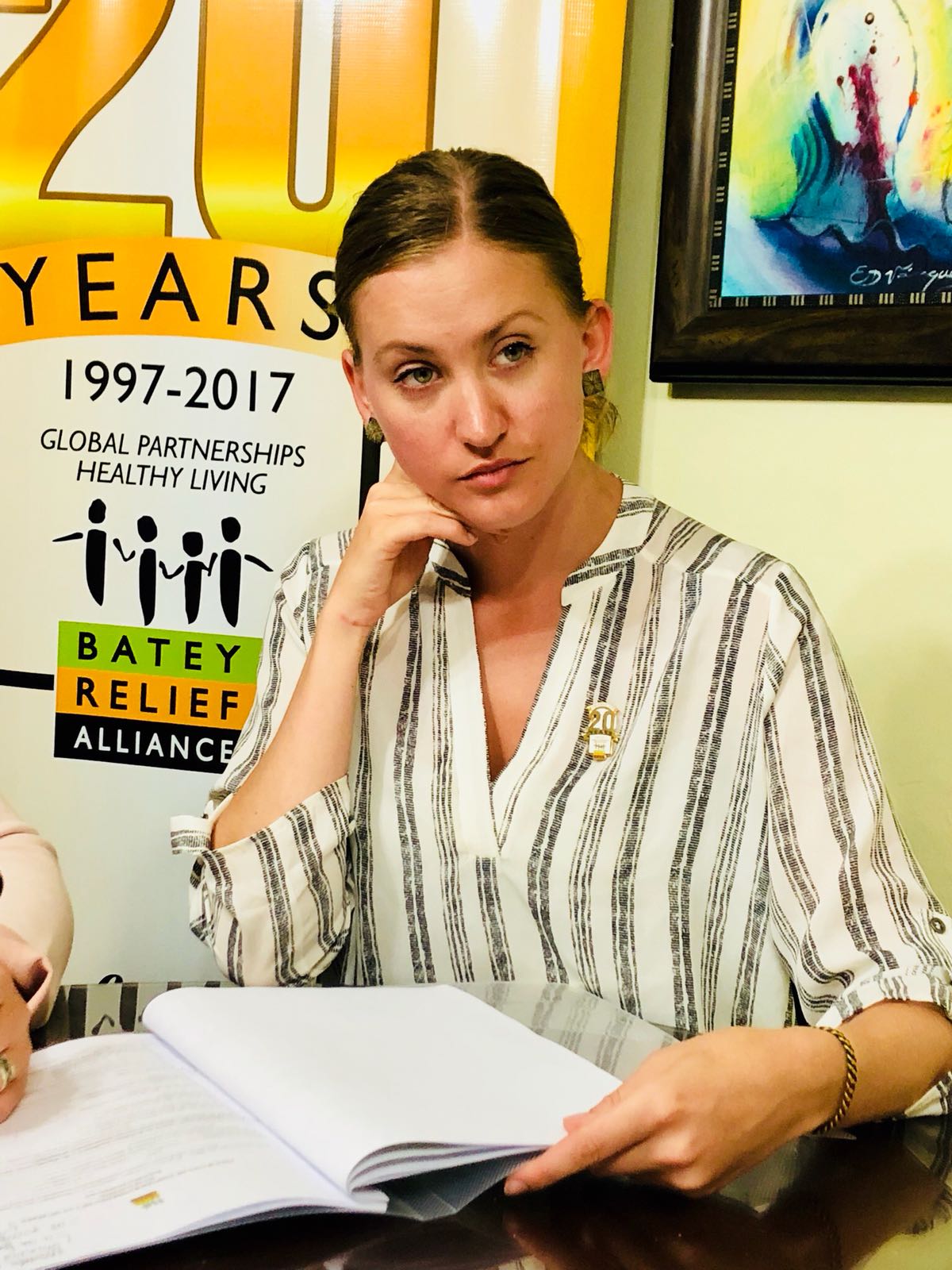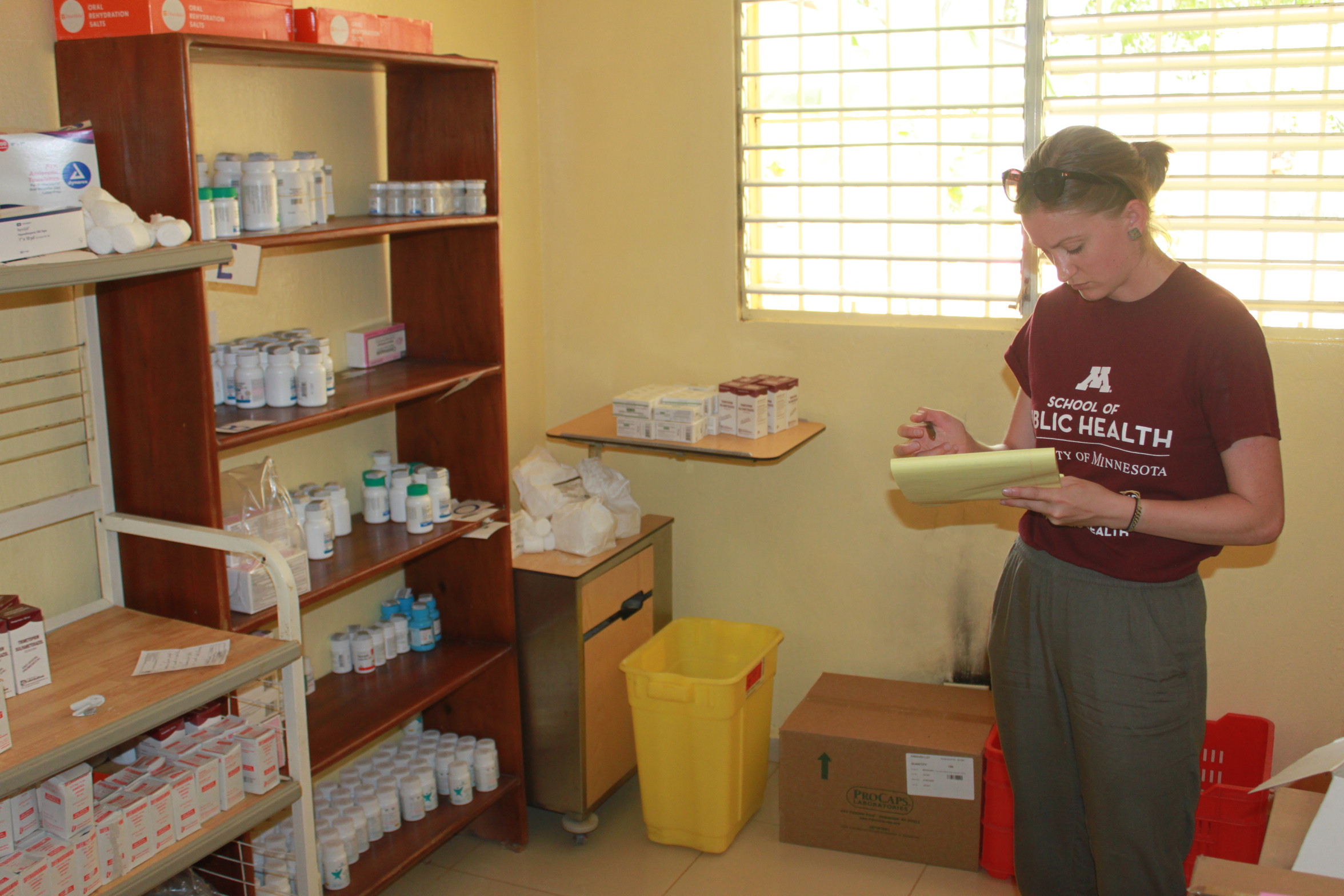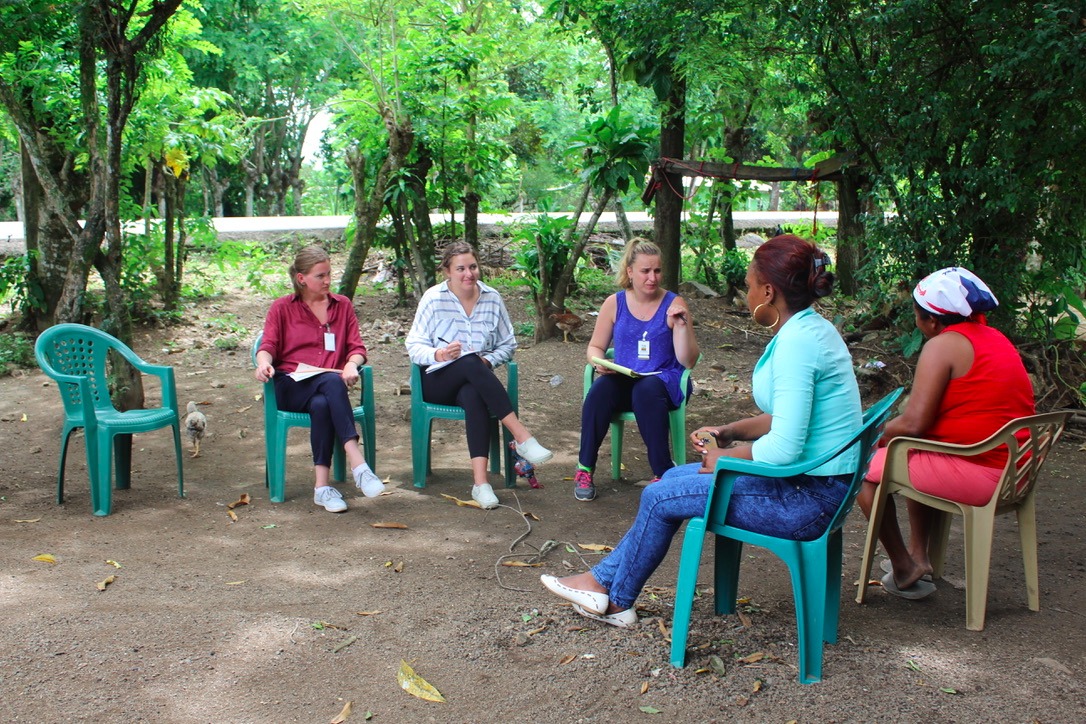This piece is part of a five part series of Student Spotlights highlighting the applied practice experience of four students in the Dominican Republic during the Summer of 2018. The other four parts of the series include an interview by Elizabeth Stanczyk and experience reflections from Hannah McNamee, Elizabeth Stanczyk, and Keelin Roche. #UMNMCH student Shelby Panttaja (MPH ‘19) wrote this reflection on how she utilized her undergraduate studies to study nutrition and the food security of communities in the Dominican Republic.

Background and Previous Experiences
As a Human Nutrition and Dietetics major in my undergraduate studies, I developed an interest in global health and early development health factors, so it made sense to later enter the Maternal and Child Health (MCH) Program. My goal during my MPH was to gain an international professional experience which focused on nutrition concerns in global communities, particularly among women and children. As I started to visualize my field experience, I knew I wanted to connect the methods of clinical nutrition with community initiatives, and focus on community strength through women empowerment. After extensive research, I was able to identify Batey Relief Alliance (BRA), located in the Dominican Republic, as an organization that was working in these areas.
About the Project
According to its website, the Batey Relief Alliance is a non-profit, non-political, humanitarian aid entity uniting grassroots groups, faith-based organizations, government agencies, and the international community. They “form a strategic partnership to help create a safe, productive and self-sufficient environment–through health care, food security, education, disaster relief, and community development programs–for children and families severely affected by extreme poverty, disease, and hunger in the Caribbean.” BRA is affiliated with the United Nations, the Clinton Global Initiative, as well as USAID.

The Dominican Republic is an upper- and middle-income country, ranking 101 out of 187 in the 2015 Human Development Index. While the country has experienced economic growth in recent years, income distribution remains unequal, quality of health services are inadequate, and 30% of the population is affected by poverty, a number that is almost double within the country’s highly vulnerable sugarcane plantations rural communities known as bateyes where the inhabitants are mostly Haitians or Dominicans of Haitian origin. The combination of poverty, inequality, and a long history of monocrops has resulted in a lack of diverse diets and a struggling agriculture community, which exacerbates food insecurity and chronic disease. Of the nutrition related outcomes, the Dominican Republic population experiences chronic undernutrition, anemia, and micronutrient deficiencies in vitamin A, iodine and iron, most significantly in children and women of reproductive age.
There are little data collected by the government that report the food security conditions inside the Dominican Republic’s underserved sugar cane farming communities (bateyes). International donors (including USAID/DR) have increasingly recognized that food security in the bateyes is much worse than national averages would suggest, and that undernourishment among these unregistered populations triples that of even the poorest ‘mainstream’ Dominicans. The Dominican Republic is home to approximately 230 State-owned bateyes that once formed the economic backbone of this small Caribbean nation. The bateyes are segregated rural slum communities built by the government on sugar cane plantations to house Haitian migrant sugar cane cutters. Estimates of the population living and working on these bateyes vary greatly, ranging from 200,000 to over 1 million, and accounting for anywhere between 7-12% of the total population of the Dominican Republic. Despite their size and critical role in the Dominican economy, batey populations suffer inordinately from economic isolation, extreme poverty, and food insecurity. One indicator of this heightened food insecurity is the fact that childhood malnutrition rates within the bateyes are three times that those outside of the bateyes.
My Role

During my time with BRA, I focused on creating an evaluation tool for their new Women Empowerment Initiative, which uses micro-grants in the form of agricultural inputs to increase women’s food security and overall empowerment, in order to begin data collection on this population. Once arriving in Santo Domingo, Dominican Republic, I needed to establish a working definition of “women empowerment” in the context of BRA’s work, in addition to the definition of women empowerment from the United Nations. After multiple drafts and consultations, the definition of women empowerment became “The holistic process that empowers communities by training women and girls to have control and economic and social self-sufficiency.”
In order to collect data, I traveled to the providence of Monte Plata. In 2006, BRA built the Dominican Republic’s first modern medical center complex within a rural batey community – Batey Cinco Casas, District Don Juan, Monte Plata province. This was the primary location of my data collection. As a part of the data collection process, our team conducted surveys within the clinic where all patients, regardless of money, receive free medicines, and access to all the primary and specialized care services. In total, our team conducted over 50 surveys with women, both those involved in the women empowerment micro-grant project, and those who were not. We found that the current data collection method was not an adequate tool for the needs of BRA in evaluating food security, vitamin A supplementation, and food assistance. Considering this, our team began drafting a new data collection tool. It was critical that this new tool focus on indicators of women empowerment, community development, and family structure.
A literature review was conducted on previous women empowerment projects and micro-grant programs completed by other international non-government organizations and significant research papers on women empowerment. It was determined that while micro-grant projects are commonplace in international settings, rarely do they focus on women and their empowerment through nutrition and food security. In addition, there were little to no previous projects with established indicators that would be consistent with the BRA’s work. Since the BRA programs in the Dominican Republic include food security, encompassing of agricultural cooperative development and food distribution, medical donation, water and sanitation, maternal and child health, encompassing of distribution of multivitamins, vitamin A and anti-worm medicines to children and pregnant women, and education, we fortified our data collection and evaluation tools related to these indicators. To evaluate nutrition and food security, we focused on household hunger and food insecurity. Our team utilized two different screening tools, used by clinicians and field workers over 20 years, one of which has a 97% sensitivity. The evaluation tool also drew indicators from the Safe Sex Behavior Questionnaire and the United Nations Sustainable Development Goals.
 My experience in the Dominican Republic has had a substantial effect on my academic and professional goals, particularly in evaluating humanitarian aspects of research abroad. During my time with Batey Relief Alliance, I was not only able to conduct research and evaluation projects, but also participate in home visits and clinic observations, which proved to be difficult. Visiting the homes of our participants, in the rural communities was challenging as I witnessed extreme poverty, health inequality, and severe food insecurity and hunger. While I had prepared myself for encountering conditions such as this, I was not prepared for how I was going to be impacted by this experience. Overall, the experience has made me a more competent and compassionate public health professional, as well as a more empathetic and socially conscious individual. I am extremely grateful for working with this organization, as it facilitated a field experience beyond my initial expectations of international public health work.
My experience in the Dominican Republic has had a substantial effect on my academic and professional goals, particularly in evaluating humanitarian aspects of research abroad. During my time with Batey Relief Alliance, I was not only able to conduct research and evaluation projects, but also participate in home visits and clinic observations, which proved to be difficult. Visiting the homes of our participants, in the rural communities was challenging as I witnessed extreme poverty, health inequality, and severe food insecurity and hunger. While I had prepared myself for encountering conditions such as this, I was not prepared for how I was going to be impacted by this experience. Overall, the experience has made me a more competent and compassionate public health professional, as well as a more empathetic and socially conscious individual. I am extremely grateful for working with this organization, as it facilitated a field experience beyond my initial expectations of international public health work.
Shelby Panttaja is a second year MCH student at the UMN. She studied Human Nutrition and Dietetics at the University of North Carolina–Greensboro. Shelby currently works for the Minnesota Department of Health in the Refugee Health Program and recently went on a month-long trip to India with the School of Public Health where she studied Global Health, Globalization, and Leadership. Shelby was recently featured in a short video by the School of Public Health on why she loves the University of Minnesota.
Resources
1. Batey Relief Alliance. https:/www./bateyrelief.org.
2. United Nations. https://www.un.org/en.
3. Clinton Global Initiative. https://www.clintonfoundation.org/clinton-global-initiative.
4. USAIAD. https://www.usaid.gov/.
5. World Food Programme. https://www1.wfp.org/countries/dominican-republic.
6.Central Intelligence Agency. https://www.cia.gov/library/publications/the-world-factbook/fields/2046.html.
Read Student Spotlight Archives
Interested in learning more about getting a degree in Maternal and Child Health? Visit our MCH Program page for more information.
#UMNMCH #UMNProud #UMNDriven